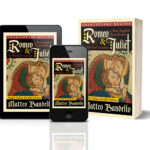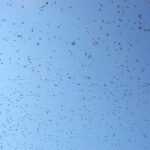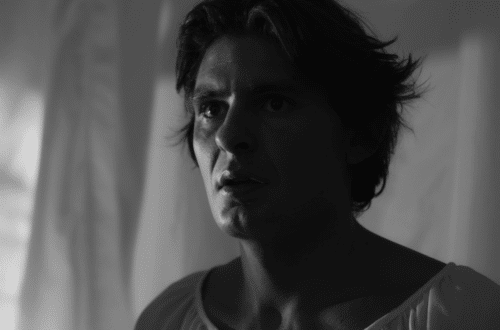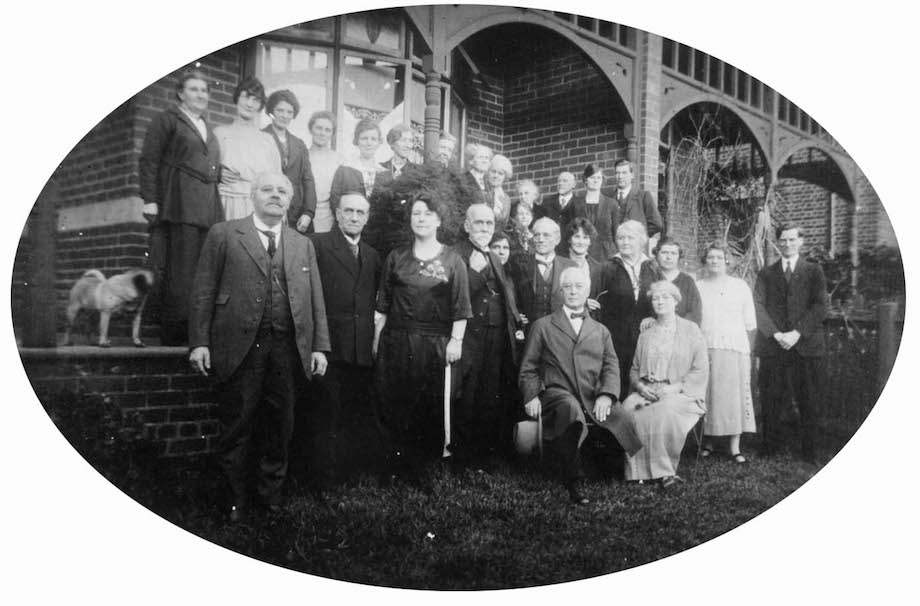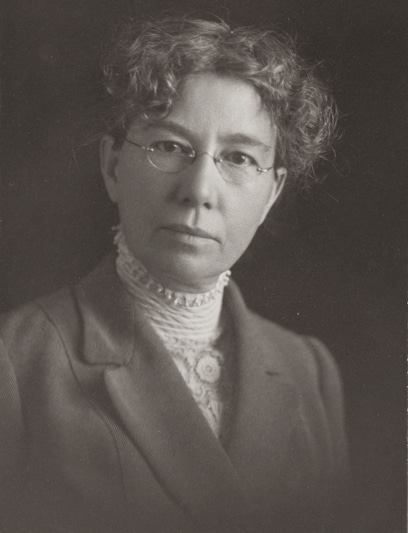
Mary Gilmore – Nationality, a Response and a Little Ghost
Australian poet, Dame Mary Gilmore (1865-1962) was knighted for her services to literature and feted for her work. She was born in Goulburn and educated near Wagga Wagga. She became a teacher in 1883 and joined the ‘New Australia’ movement, a colonial settlement in Paraguay, inspired by social utopianism. Disillusioned and by then married, she returned with her husband and child to Australia in 1902. She began writing for the Australian Worker from 1908, contributing on social and economic issues. In 1938 she was appointed a Dame. During her life she published both poetry and prose in numerous works. Her war related poetry enhanced her fame, including the patriotic poem, “No foe shall gather our harvest”. Her portrait is on the Australian ten dollar note. On the one hand, she dedicated a volume of poetry to criticism of Australia’s treatment of Aboriginal Australians. Less creditably, like others of her era, she appears to have been a convinced proponent of the White Australia policy (the legal and political consensus of the Australia during much of her lifetime). In a speech late in her life she recalled her The Passionate Heart and Old Botany Bay.
Her poem Nationality, written on 12 May 1942, reflects on the contradictions, or perhaps origins of nationality or preference for “our own.” Her poem, interestingly, was written only a few days after the significant strategic defeat of the Imperial Japanese Navy (then at war with Australia) in the Battle of the Coral Sea. Australian press reported the battle as a major victory for the allies, listing the many ships lost by the Japanese, but allied losses were not fully reported. The event may have influenced Gilmore’s reflections in her poem.
Like Dante, for her the world is one. Yet her poem is written in wartime. It is perhaps intentionally ambiguous in its conclusion. Are we to understand it as unveiling why the world is, in practice, not one, or is she presenting her own poetic ‘realpolitik‘? Our world may be one but what’s ours is ours. While hate and bitterness are set aside, fear seems to be another matter. It is of course a natural feeling, but perhaps not the whole story. The poem is, in any case, justly regarded as one of her best.
Nationality
Nazionalità
I have grown past hate and bitterness,
I see the world as one;
Yet, though I can no longer hate,
My son is still my son.
Sono passata oltre l’odio e l’amarezza,
Il mondo lo veggio – ed uno è;
Ma, anche se odiare più non posso;
Mio figlio è sempre mio figlio.
All men at God’s round table sit
And all men must be fed;
But this loaf in my hand,
This loaf is my son’s bread.
Mary Gilmore
Tutti si siedono al tavolo tondo di Dio
E a tutti serve il cibo;
Ma questa pagnotta qui nella mia mano,
Questa pagnotta è il pane di mio figlio.
Italian translation by Michael Curtotti
Below is my own poem in response to Mary Gilmore’s Nationality. Her poem leaves open questions, and seems to invite a response, or at least further reflection. In some respects, Beyond Nationality below addresses themes that she explores in her 1932 poem War.
Beyond Nationality
My son will always be my son
My bread, his bread.
Yet I wonder that for the nation,
His blood may still be shed.
Oltre Nazionalità
Mio figlio sempre mio figlio sarà,
Il mio pane, il suo pane.
Ma mi meraviglio che per la nazione
Il suo sangue versato ancora sarà.
What good is bread,
When I offer it at his grave?
To what end, bitterness and hate?
Too late then, to set down fear,
Che val’ il pane,
Quando lo offro alla sua tomba?
Quale bene, amarezza ed odio?
Troppo tardi allora, rinunciare alla paura,
To be sure, the world is one,
And all will gather at the festal board,
When in our hearts,
The sacred dream is won.
Michael Curtotti
Sicuramente, il mondo uno è,
E tutti si radunano al banchetto benedetto,
Quando nei nostri cuori,
Il sacro sogno caro è.
Italian translation by Michael Curtotti
The poem below by Mary Gilmore, A Little Ghost, is on a completely different topic. It takes us into a magical moonlit world. As for Nationality, I provide an Italian translation.
A Little Ghost
Una piccola fantasmina
The moonlight flutters from the sky
To meet her at the door,
A little ghost, whose steps have passed
Across the creaking floor.
Il chiaro della luna svolazza dal cielo
E la incontra alla porta,
Una piccola fantasmina, i cui passi
Traversano un pavimento scricchiolante.
And rustling vines that lightly tap
Against the window-pane,
Throw shadows on the white-washed walls
To blot them out again.
E il fruscio leggero delle vigne picchia
Sulla lastra della finestra,
E getta ombre sulle pareti imbiancate
Nascondendole di nuovo.
The moonlight leads her as she goes
Across a narrow plain,
By all the old, familiar ways
That know her steps again.
I raggi della luna la conducono nel suo cammino,
Attraverso uno stretto prato,
Su tutti i vecchi, familiari sentieri,
Che conoscono bene i suoi passi.
And through the scrub it leads her on
And brings her to the creek,
But by the broken dam she stops
And seems as she would speak.
E per la selva la portano
Al piccolo ruscello,
E presso la diga crollata si ferma
E sembra che vorrebbe dir qualcosa.
She moves her lips, but not a sound
Ripples the silent air;
She wrings her little hands, ah, me!
The sadness of despair!
Apre le sue labbra, ma nessun suono,
Ondeggia nell’aria quieta,
Torce le sue piccole mani, aihmè!
Come duole la disperazione!
While overhead the black-duck’s wing
Cuts like a flash upon
The startled air, that scarcely shrinks
Ere he afar is gone.
Nel cielo l’ala della papera nera
Taglia come un fulmine
L’aria sorpresa, che si tira appena indietro
Prima che si allontani e sparisca.
And curlews wake, and wailing cry
Cur-lew! cur-lew! cur-lew!
Till all the Bush, with nameless dread
Is pulsing through and through.
I chiurli svegli, e il lor canto lamentoso
Cur-ui! cur-ui! cur-ui!
Fin quando tutto il Bosco, pieno di paura ignota,
Batte come un cuore.
The moonlight leads her back again
And leaves her at the door,
A little ghost whose steps have passed
Across the creaking floor.
Mary Gilmore.
Il chiaro della luna la guida indietro,
Lasciandola alla porta,
Una piccola fantasmina i cui passi
Hanno attraversato il pavimento scricchiolante.
Italian translation by Michael Curtotti
With grateful thanks to Azzurra Cirrincione for her proofreading of the Italian translation.



